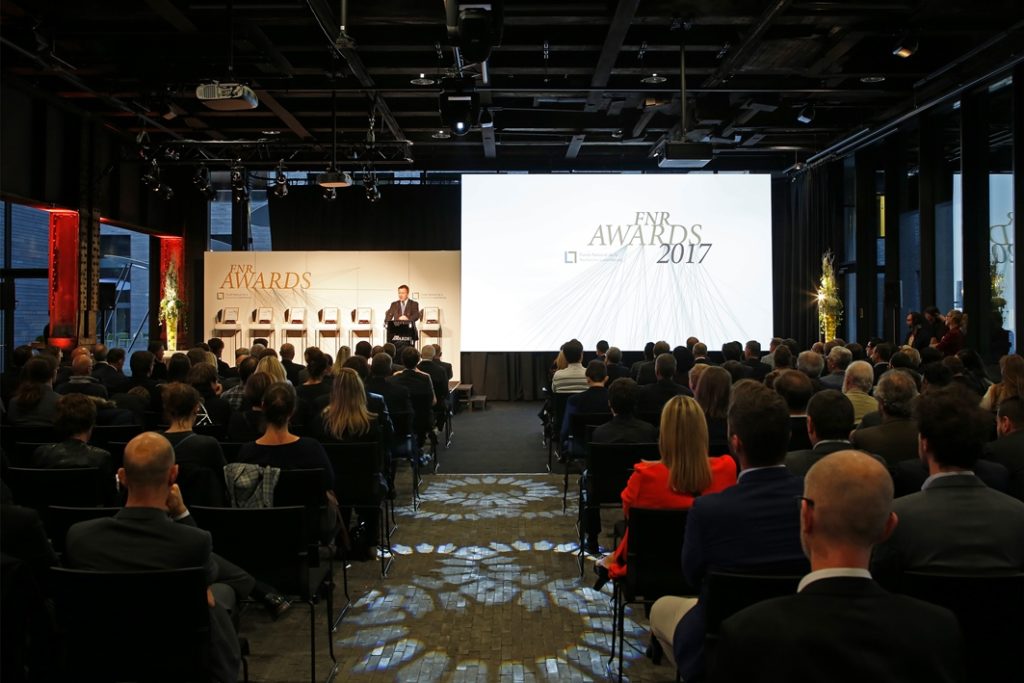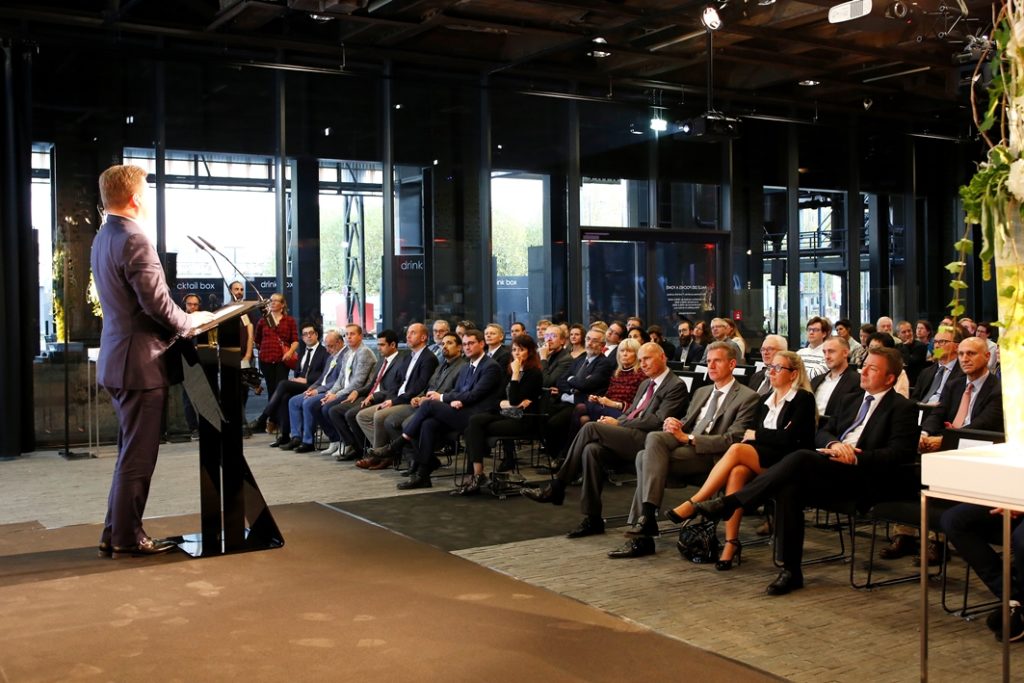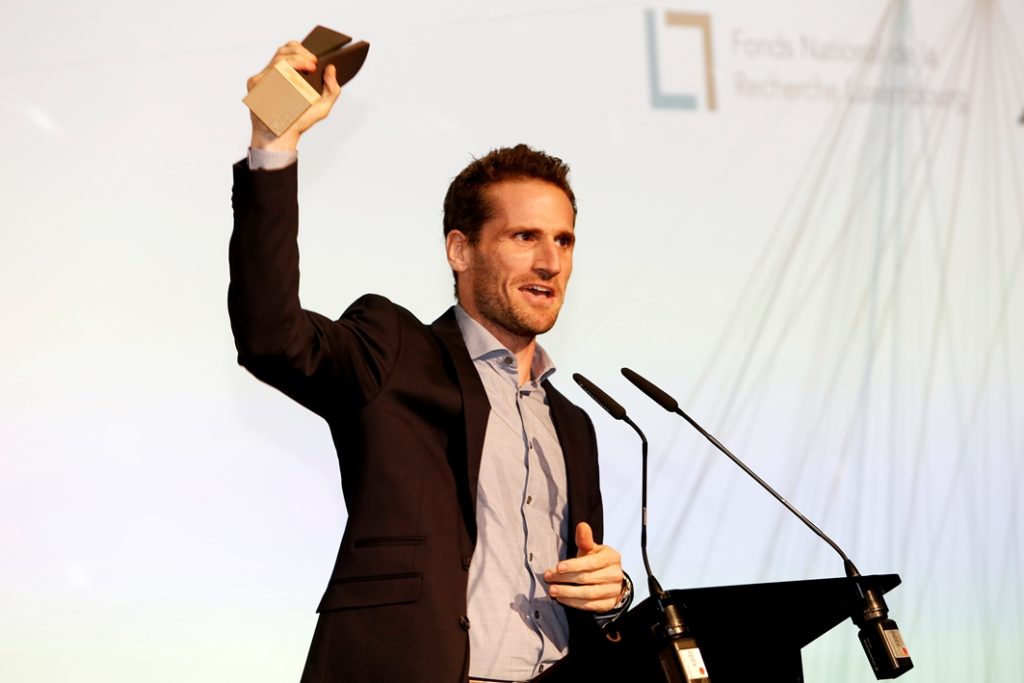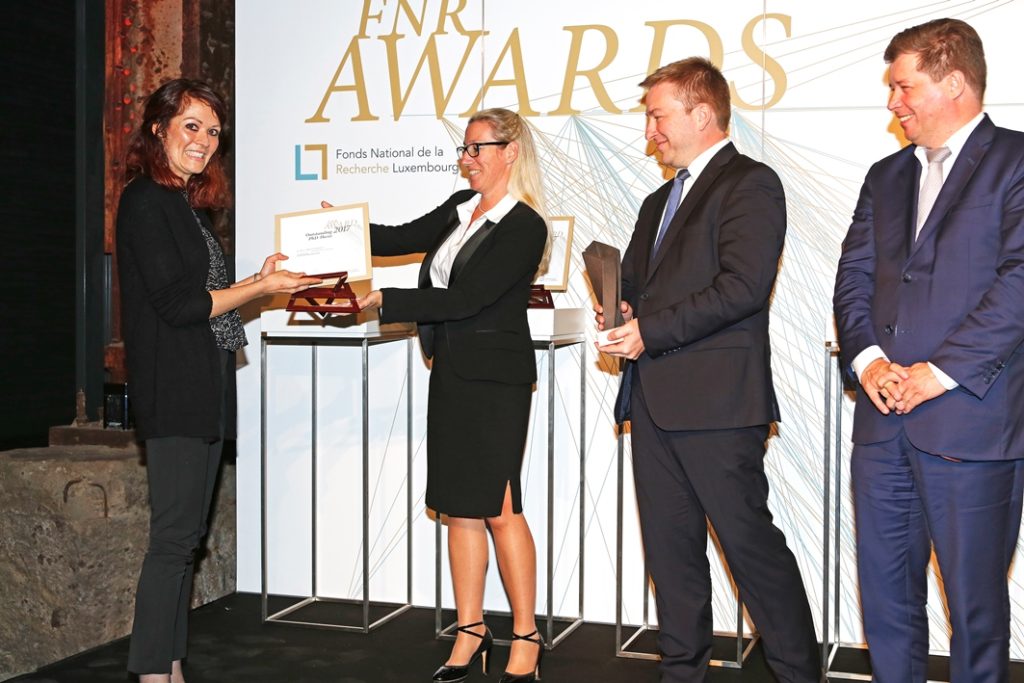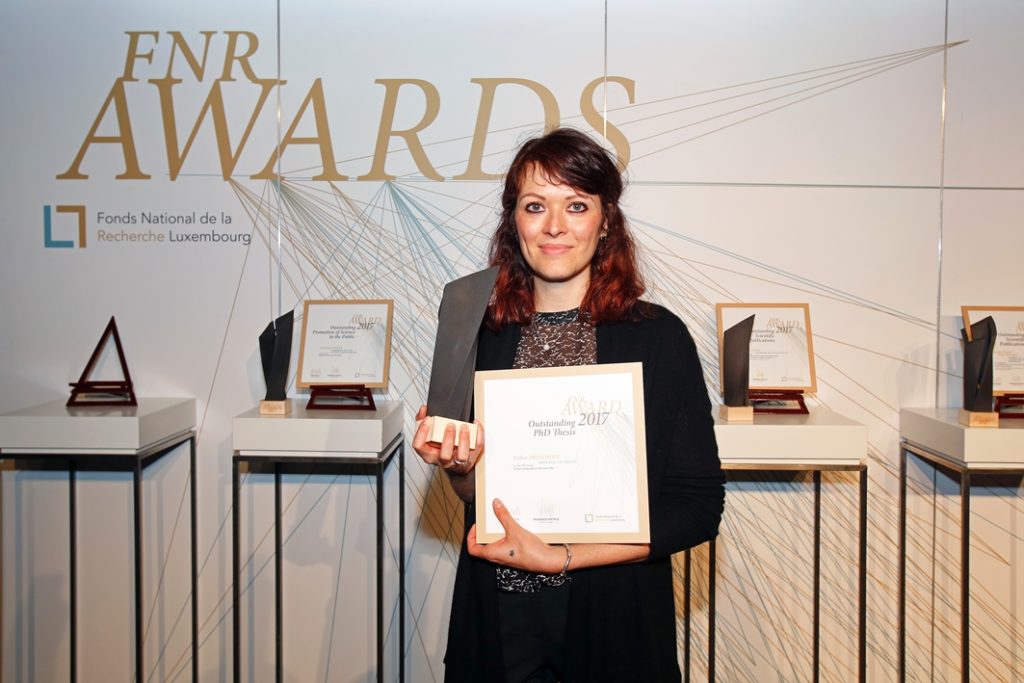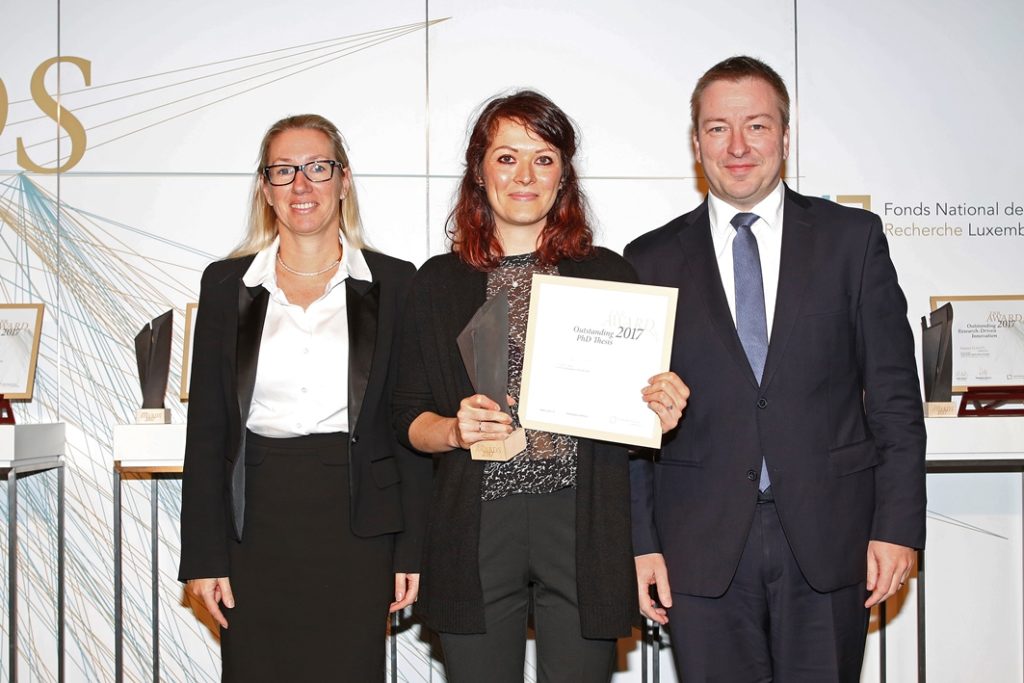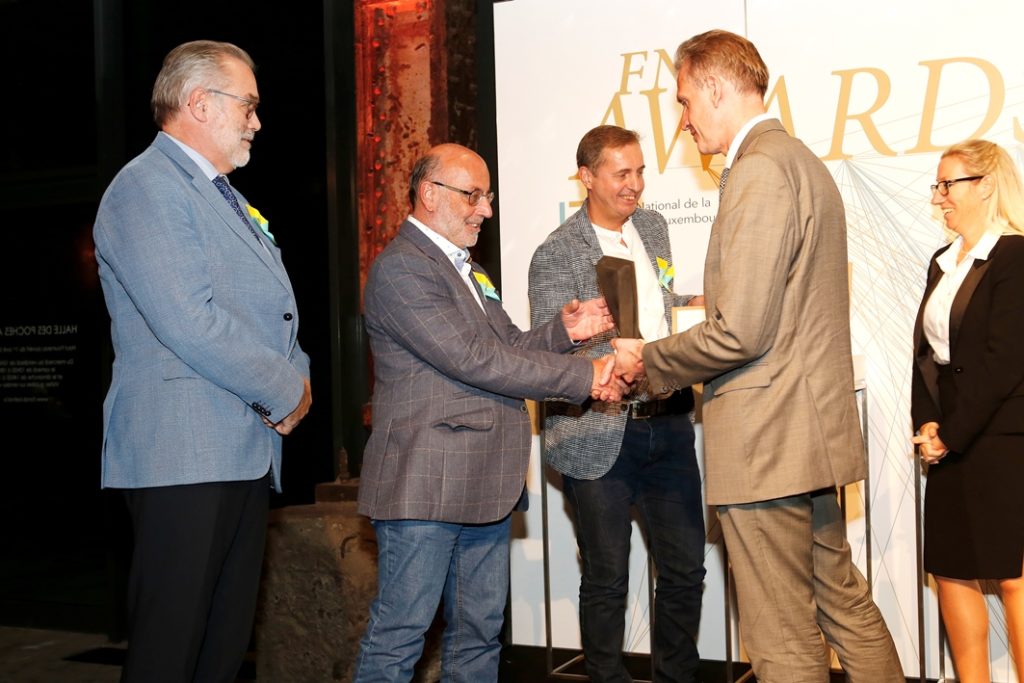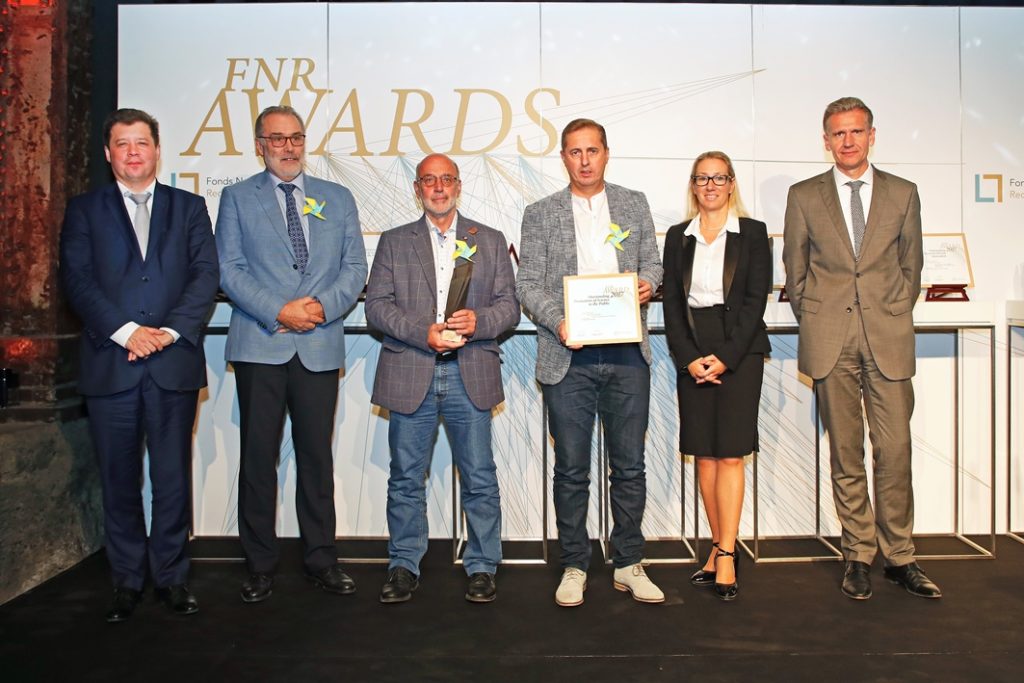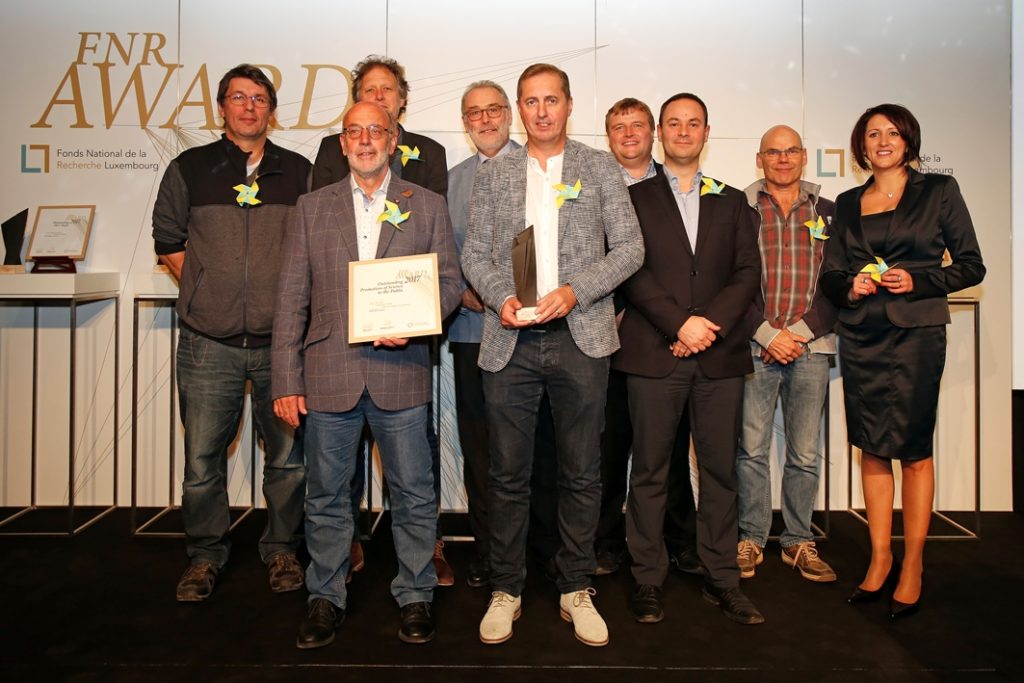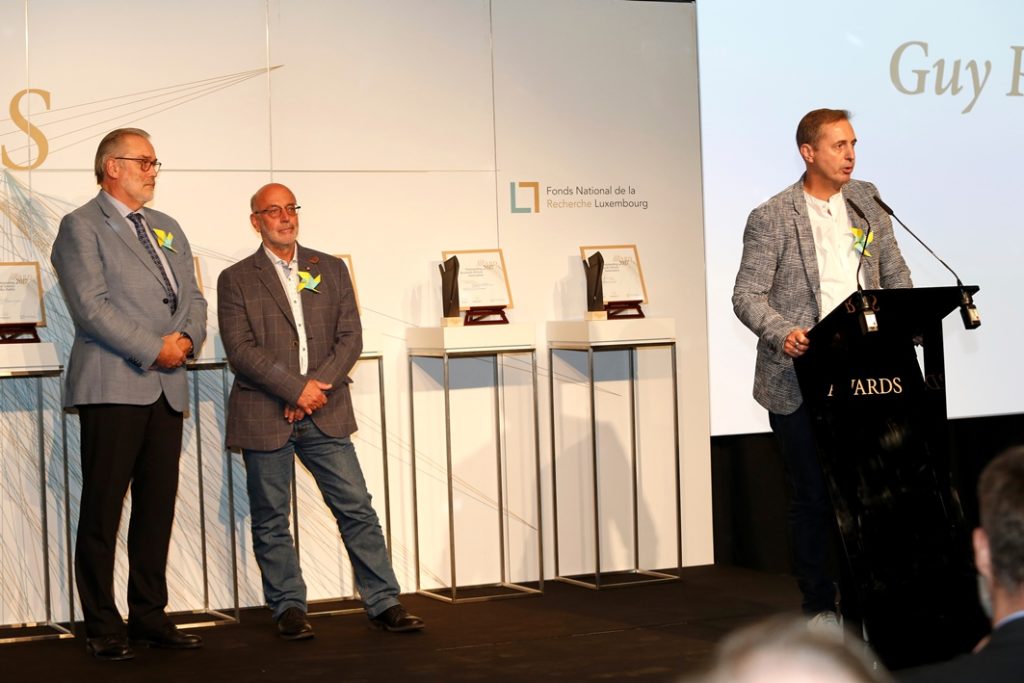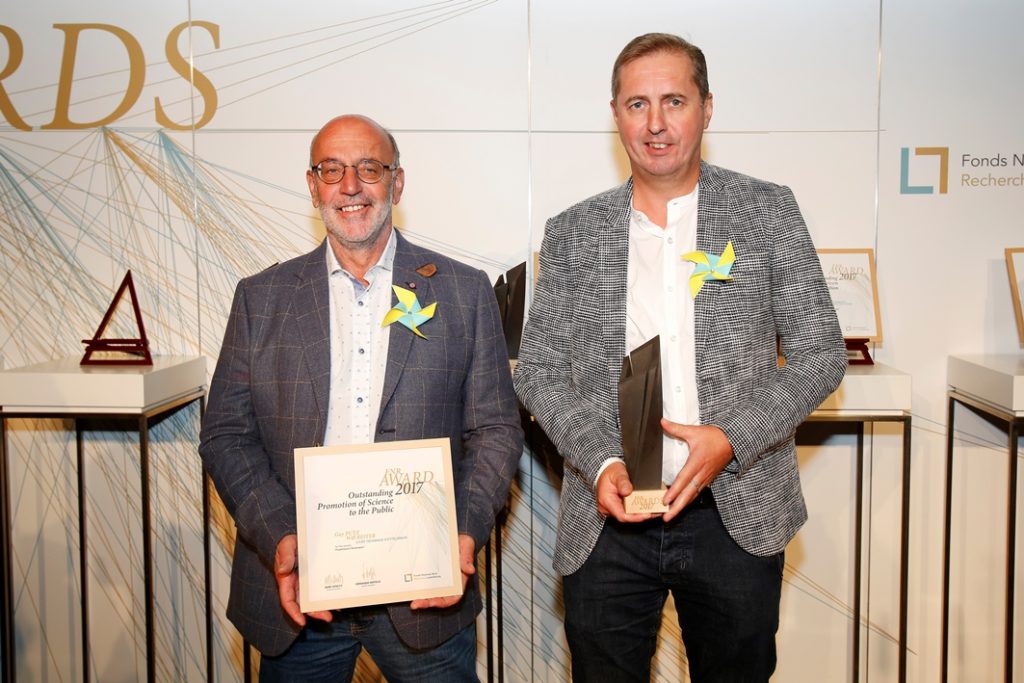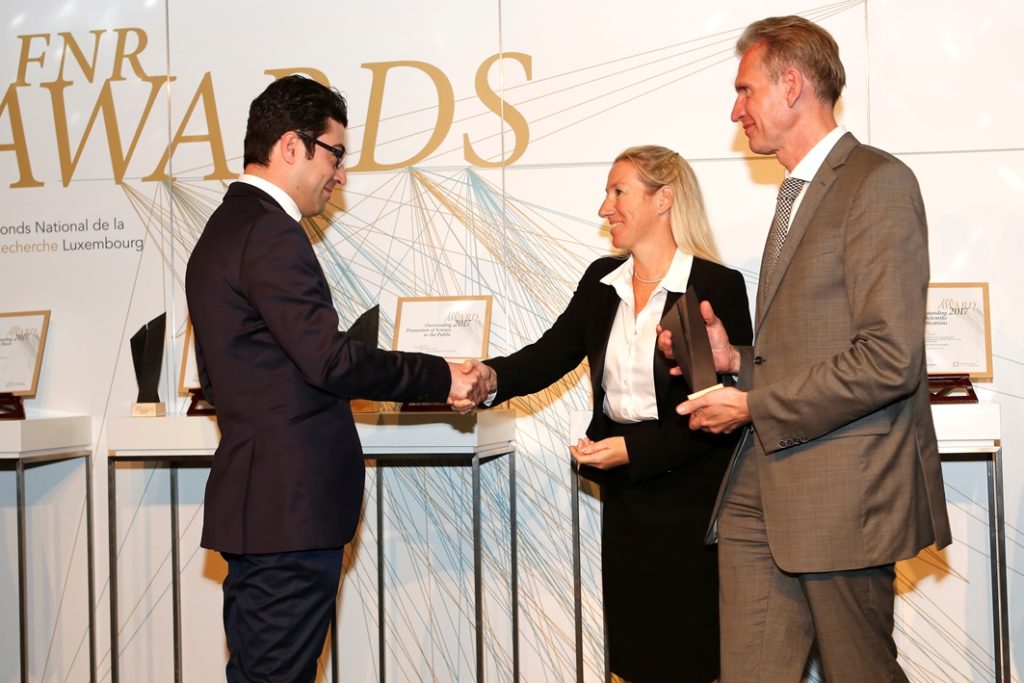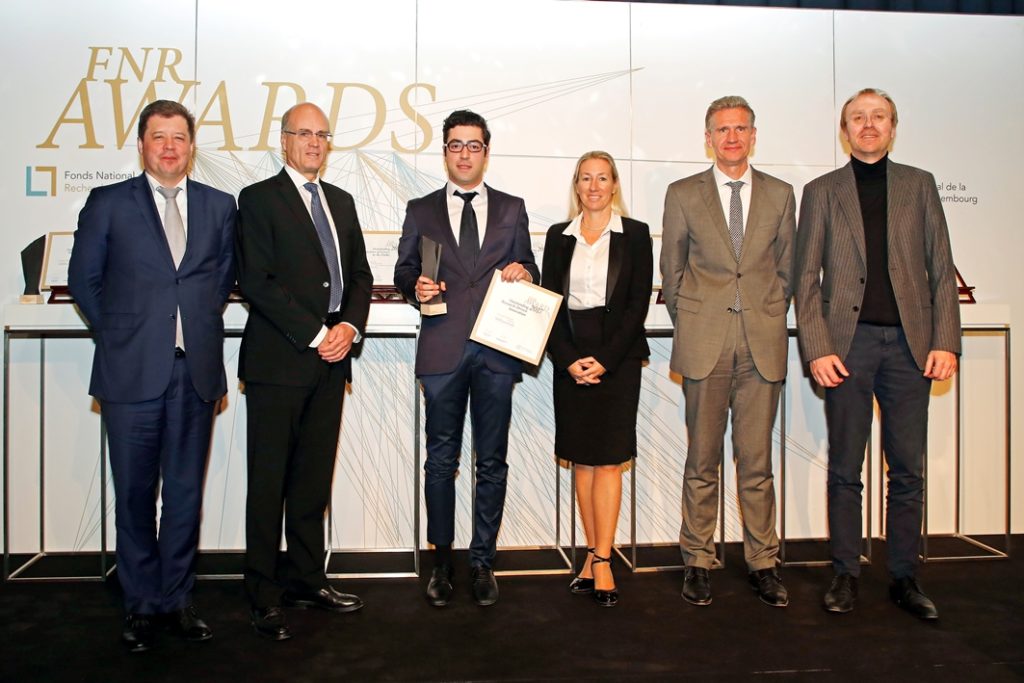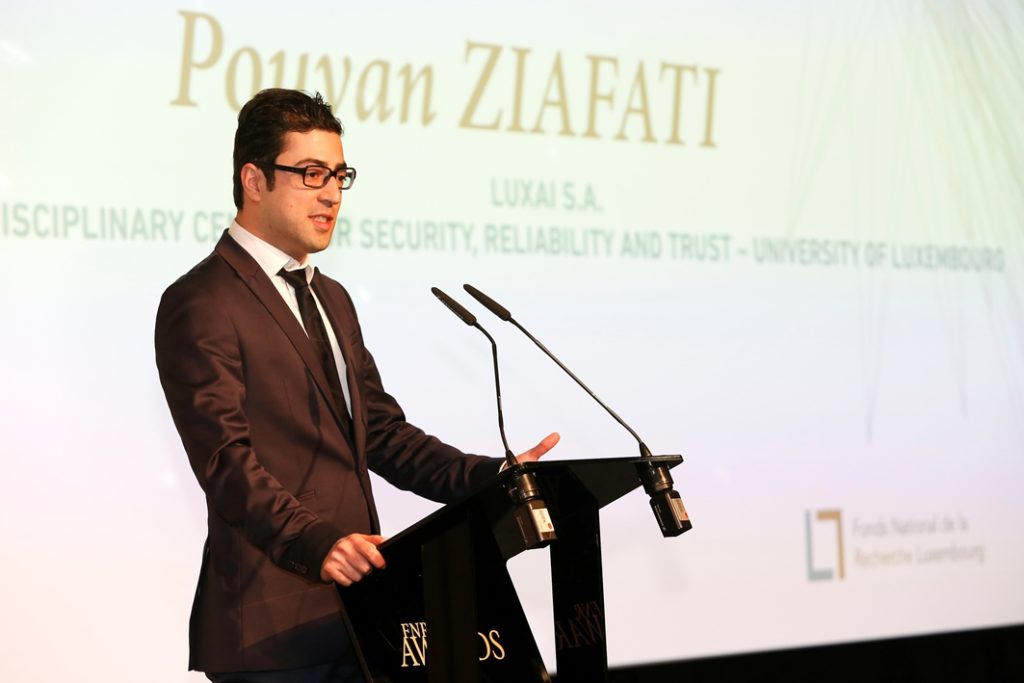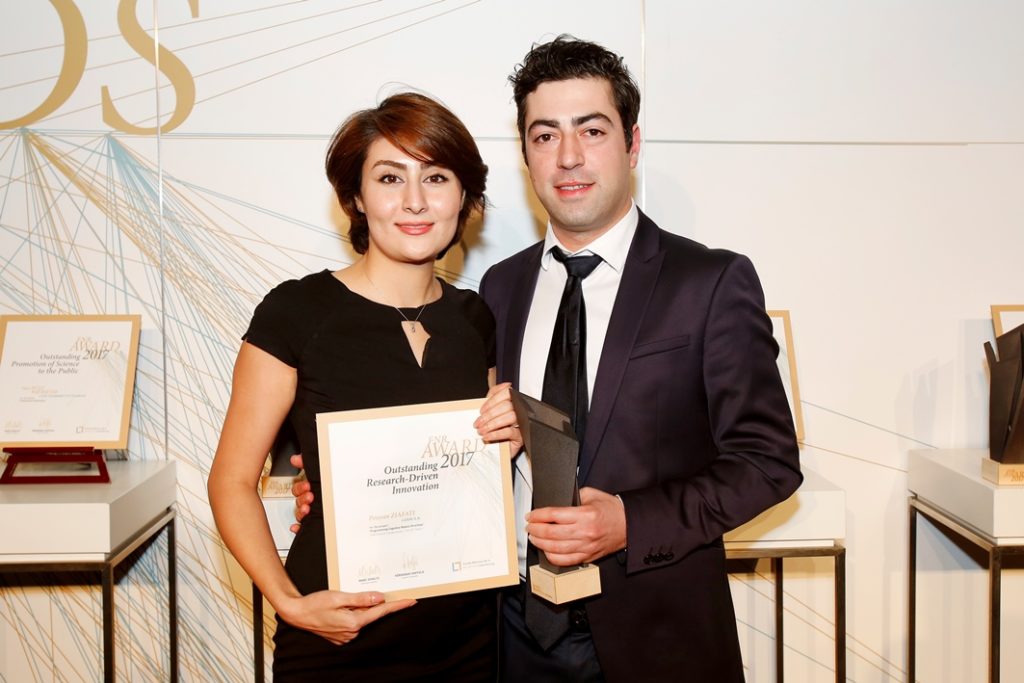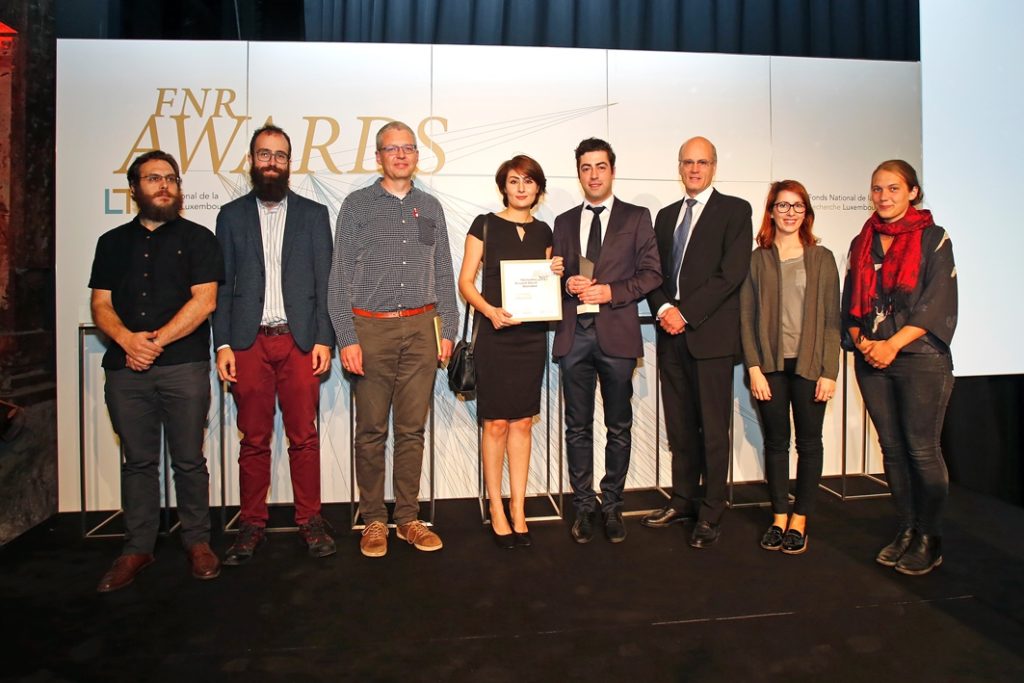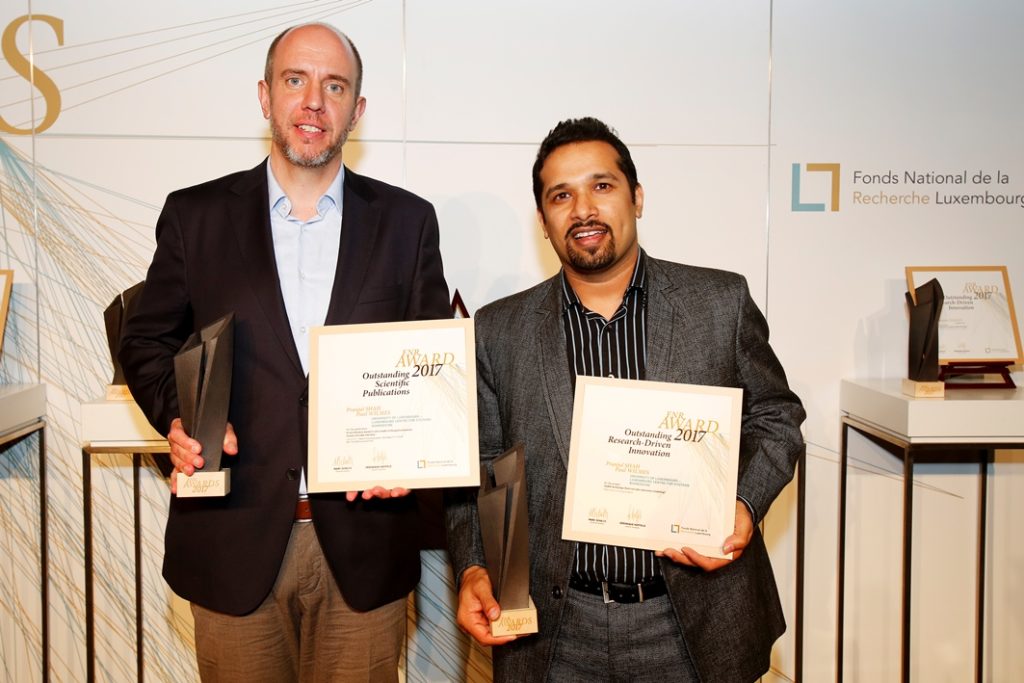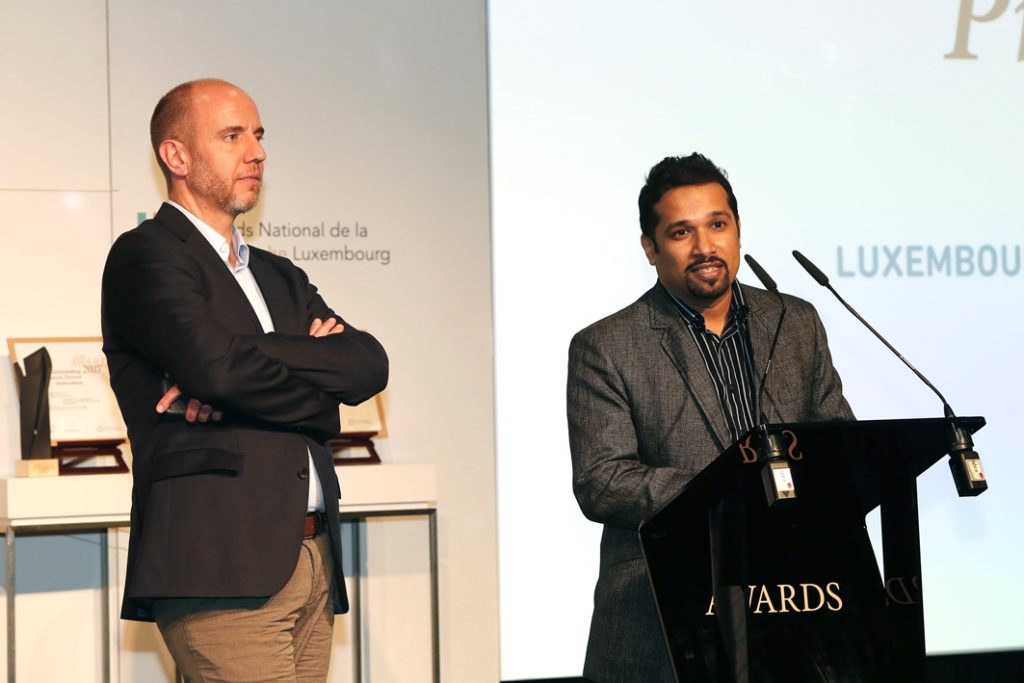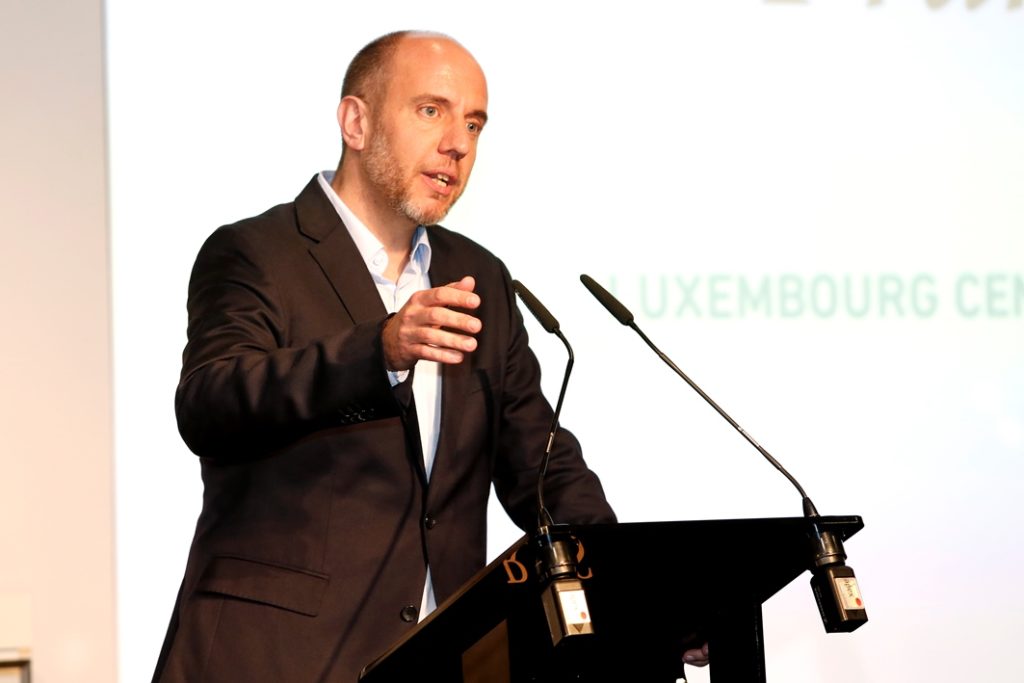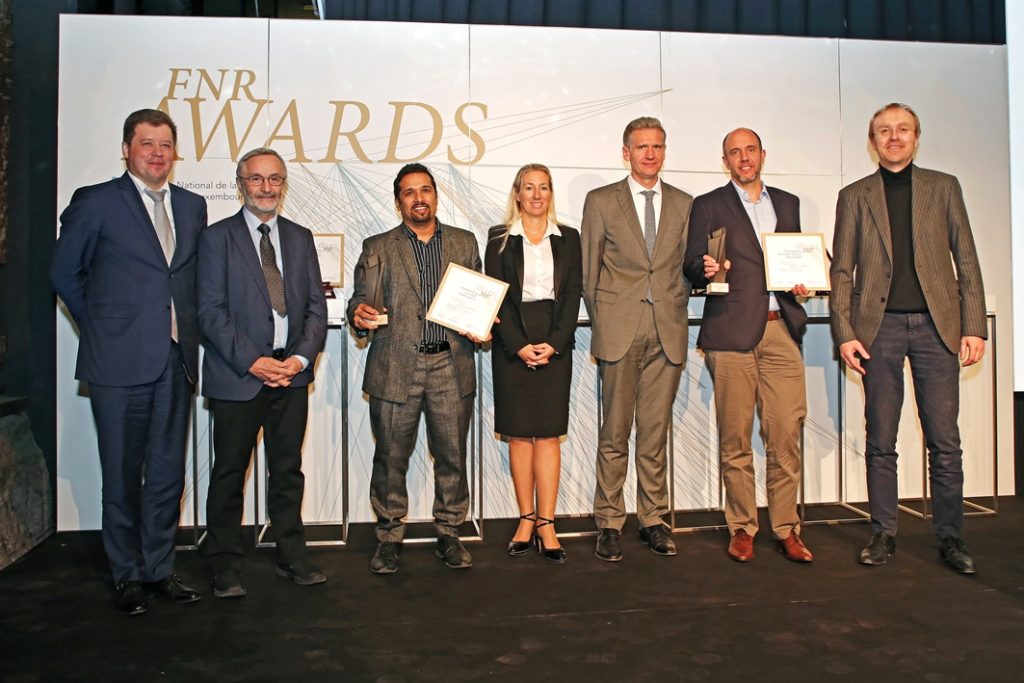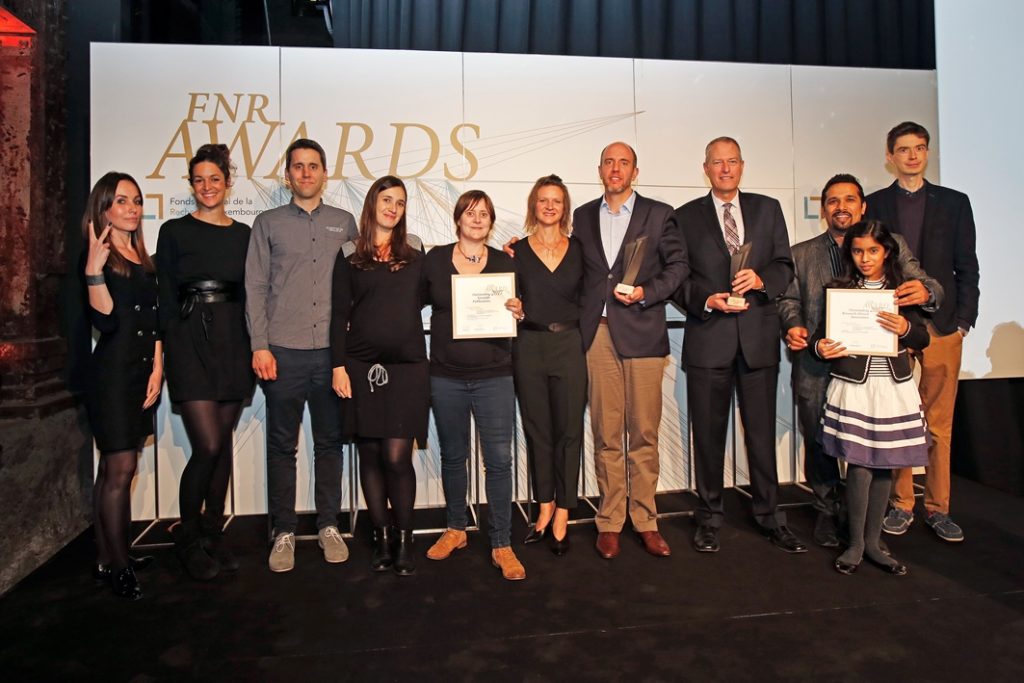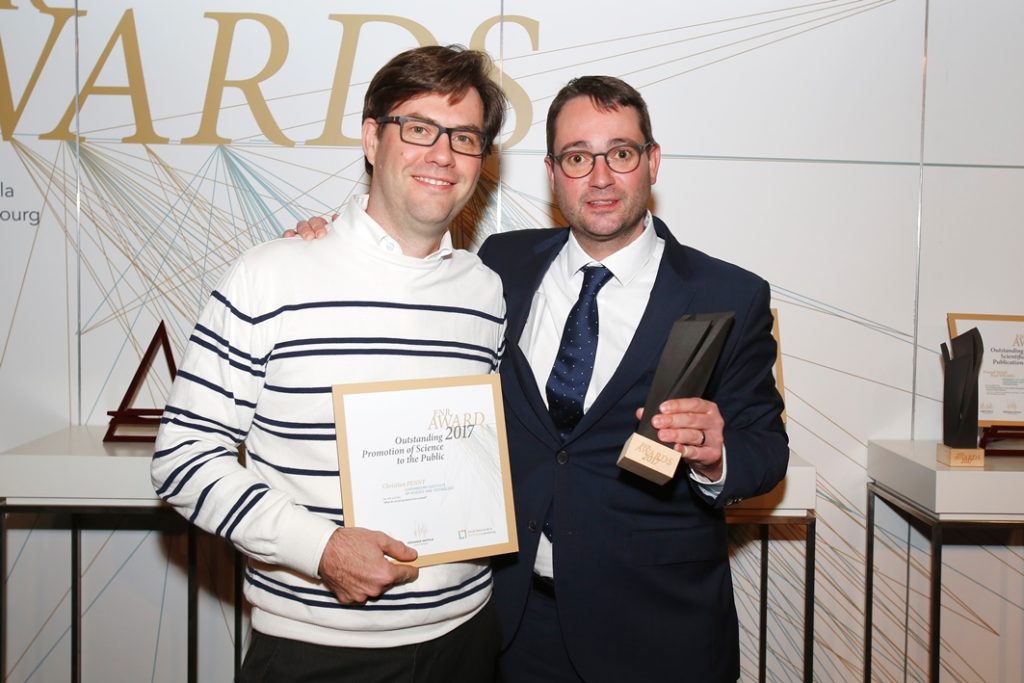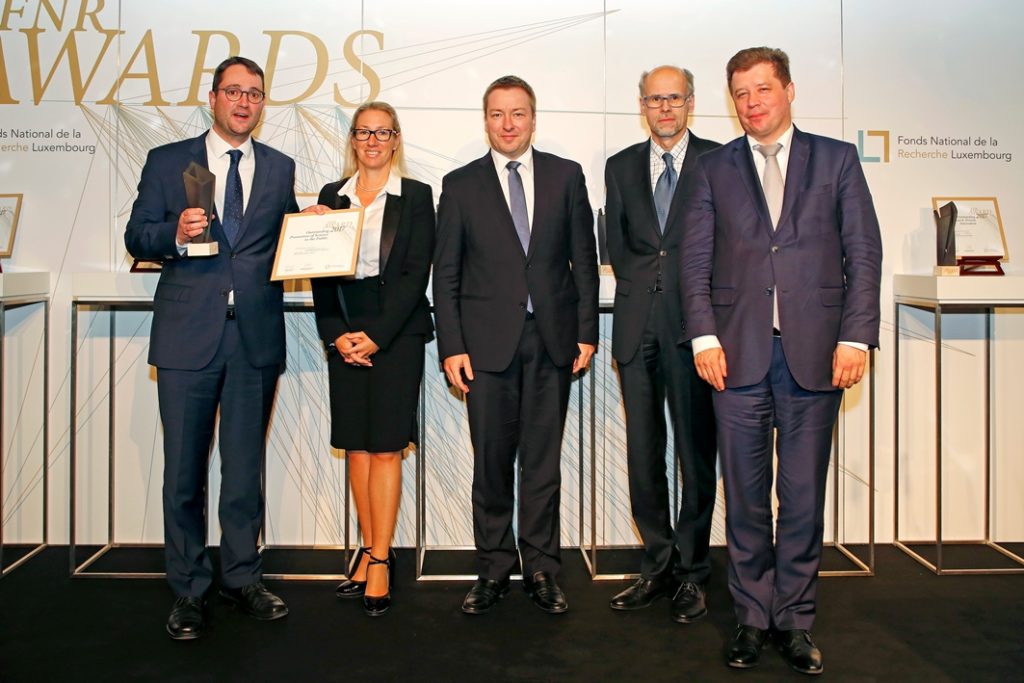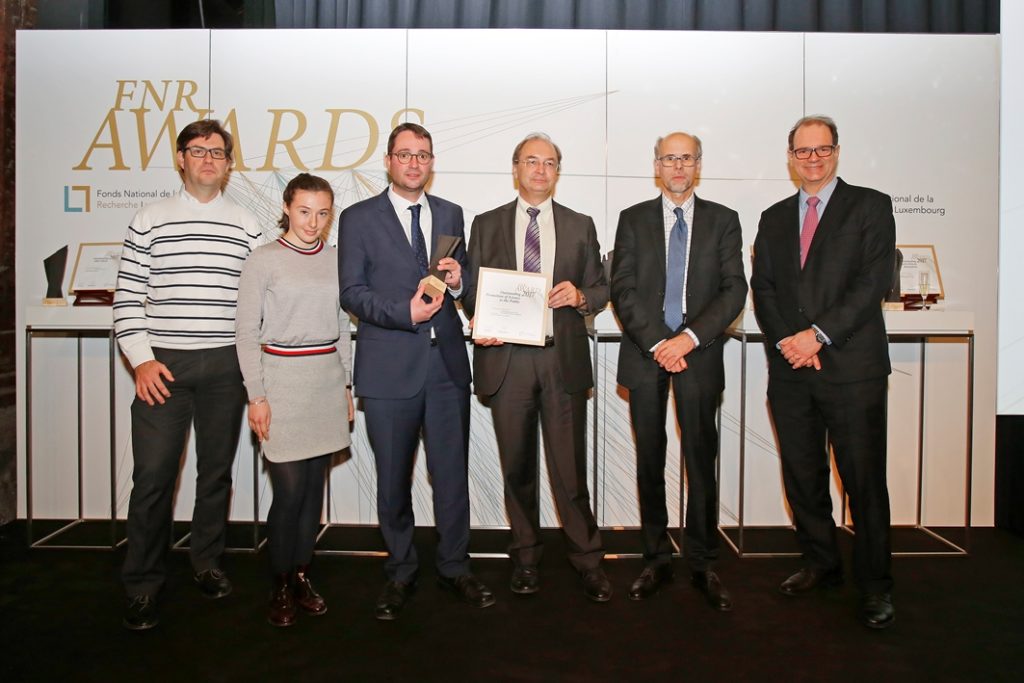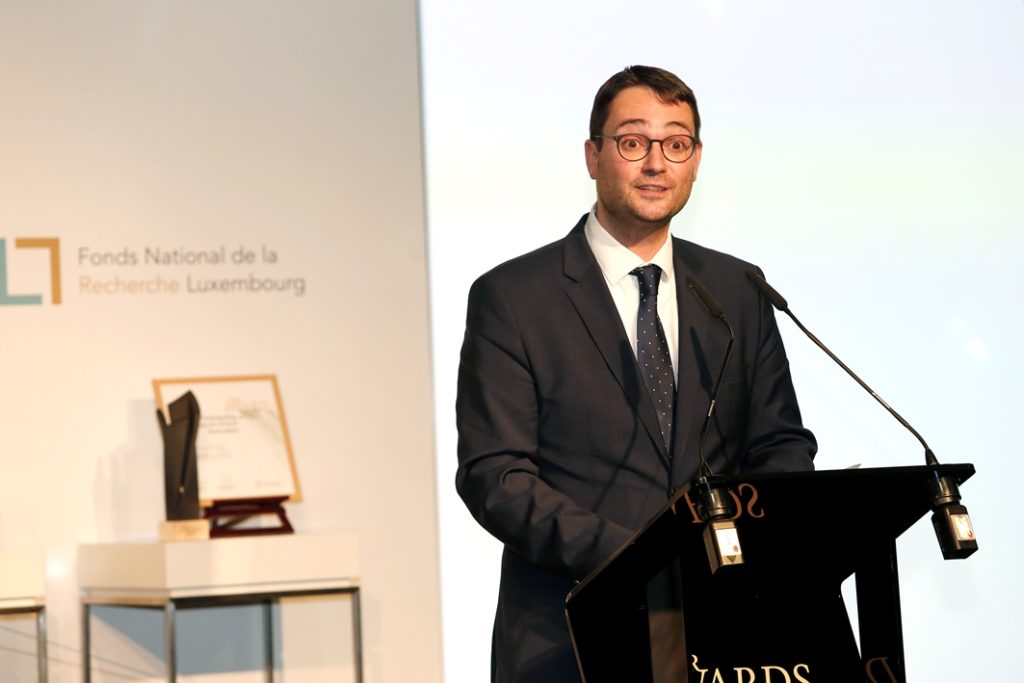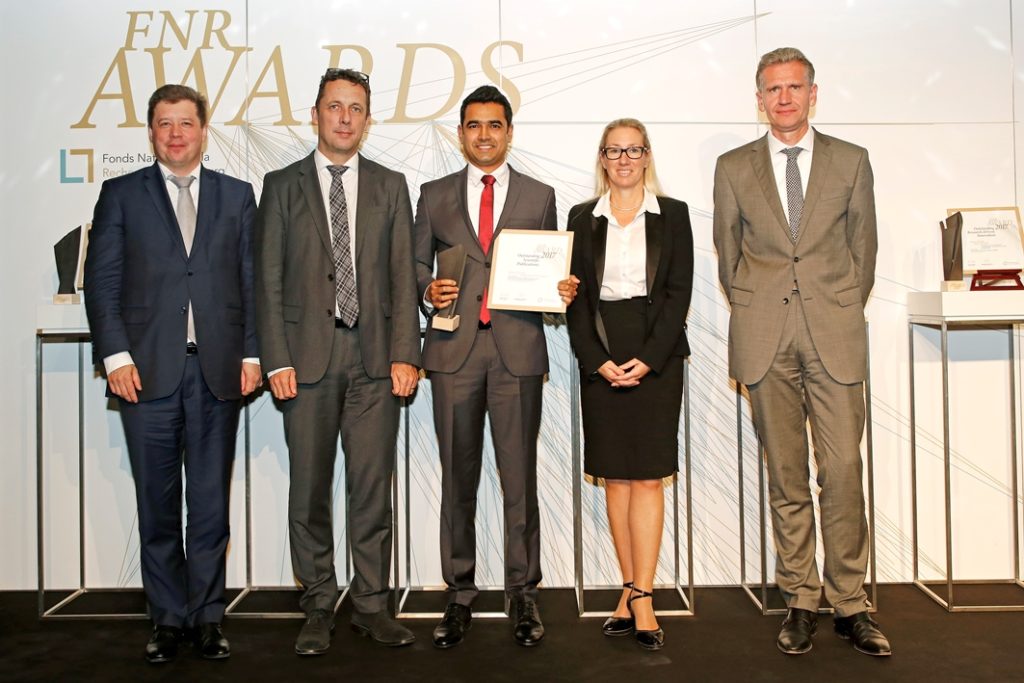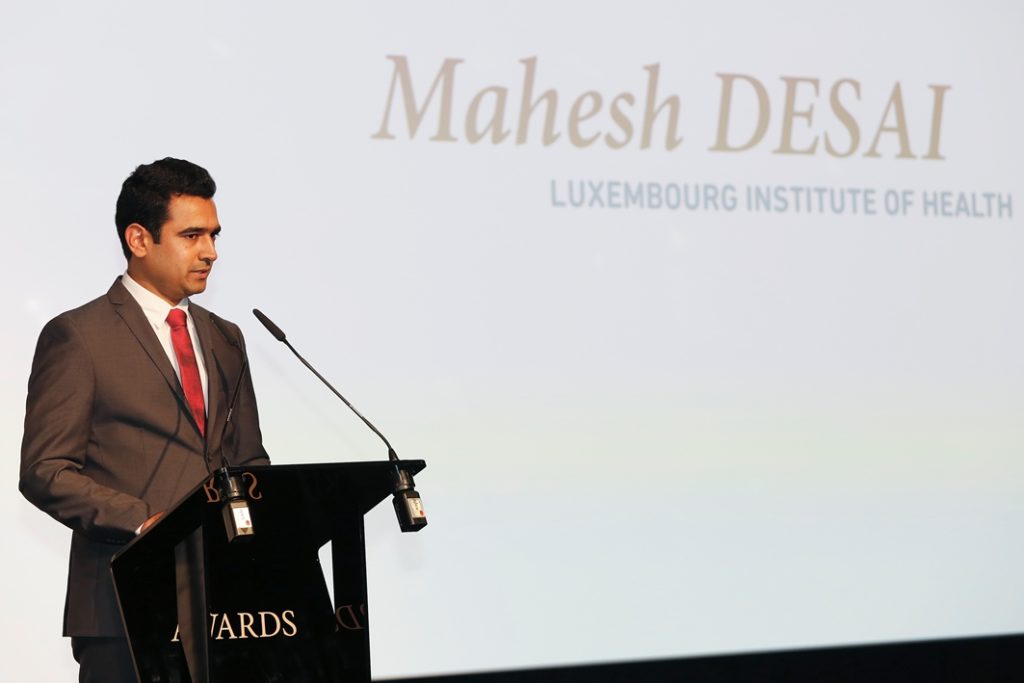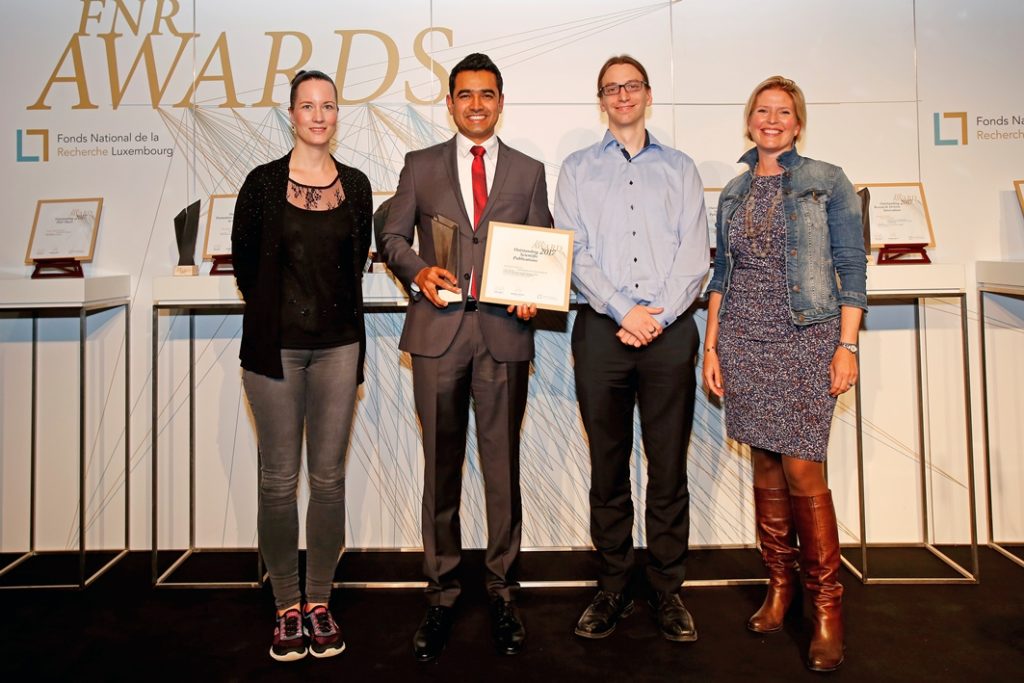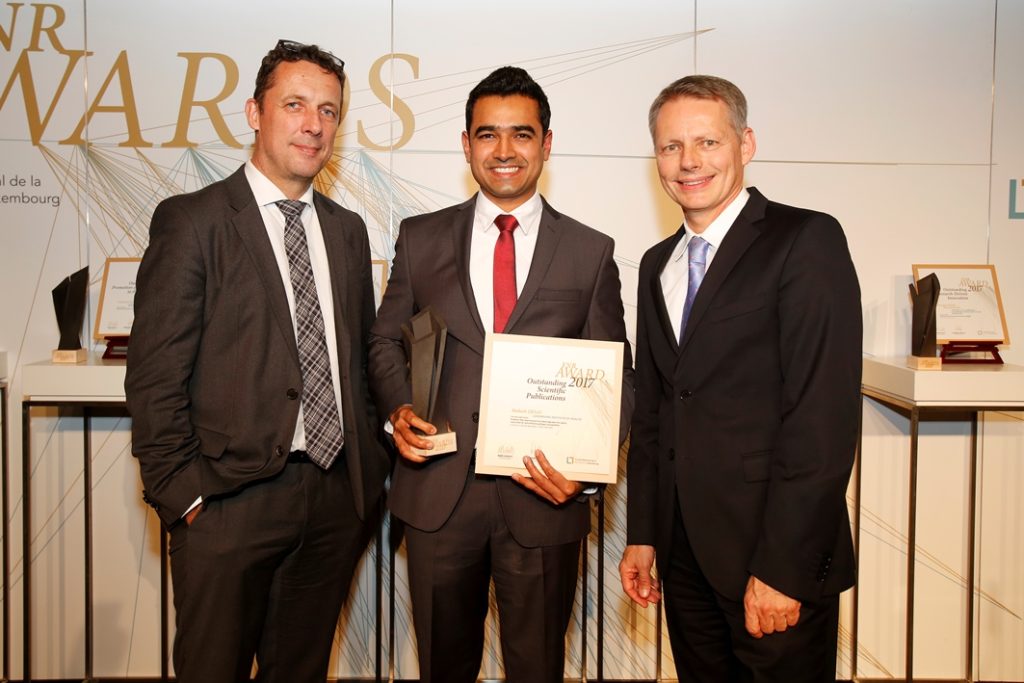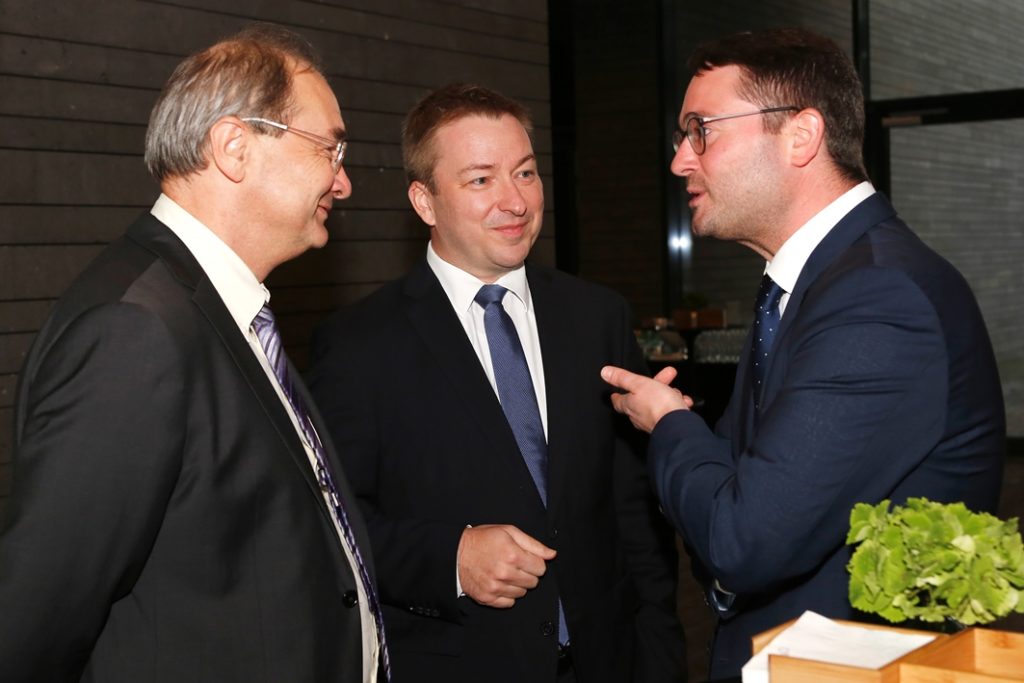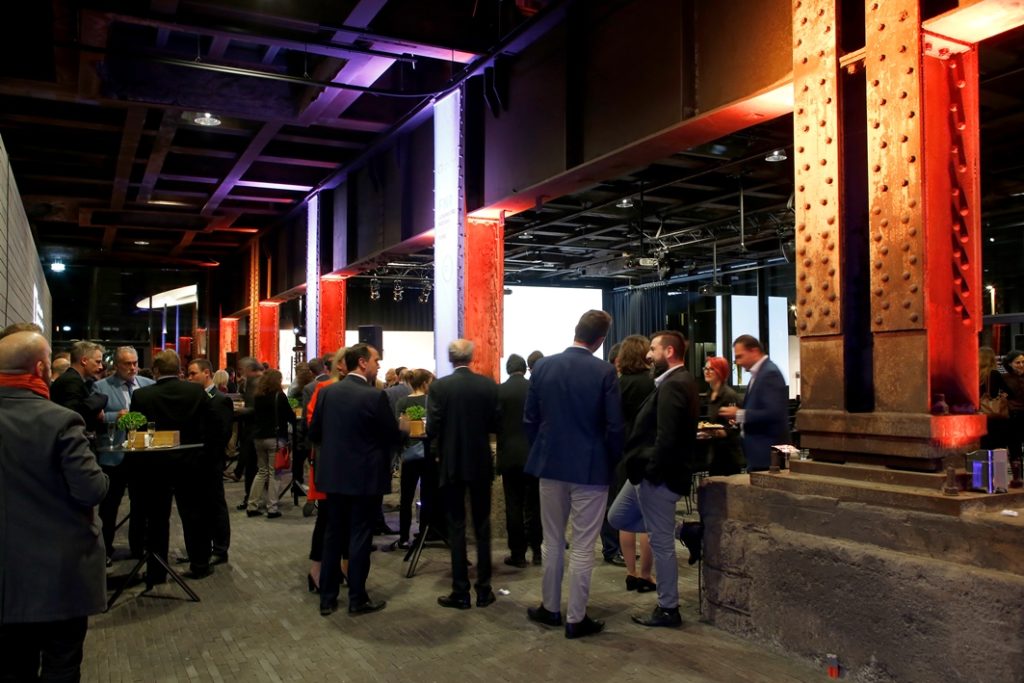On Friday, 27 October, the FNR held the 9th edition of the FNR Awards, presenting 7 awards for excellence in research, innovation and science communication. In presence of the Luxembourg research community, awards endowed with a 5000 EUR prize were presented in the categories Outstanding Scientific Publication, Outstanding PhD Thesis, and Outstanding Promotion of Science to the Public, and a new category: Outstanding Research-Driven Innovation.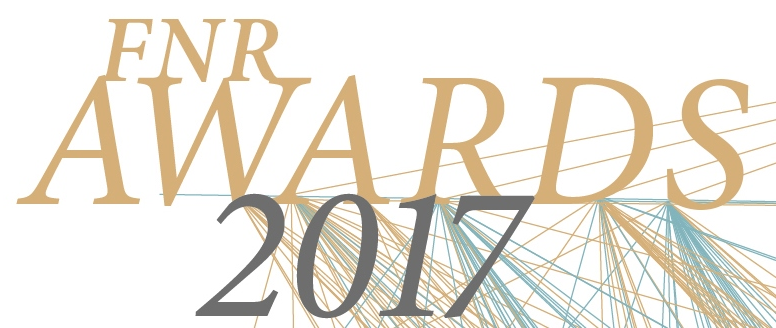
The aim of the FNR Awards is to reward outstanding researchers and science communicators along with their individual institutions. This year, four of the seven Awards were granted to researchers in microbiology, testifying the concerted efforts that Luxembourg’s research community pursues in this area of research. The other three Awards went to scientists, teachers and entrepreneurs in the fields of archaeology, renewable energies and artificial intelligence.
The awards were presented by Marc Hansen, Luxembourg’s Minister Delegate for Higher Education and Research; Véronique Hoffeld, Chair of the Board of the FNR; and Marc Schiltz, Secretary General of the FNR. Véronique Hoffeld congratulated the winners in her speech and thanked them for their dedicated efforts.
In his speech, Minister Delegate Marc Hansen emphasised the importance of shaping research in regard to economic and/or social benefits, and making science tangible through efficient communication and activities. One of the prerequisites for this is provided by the ministry, as the funding of public research institutions will increase by 205 MEUR over the next four years.
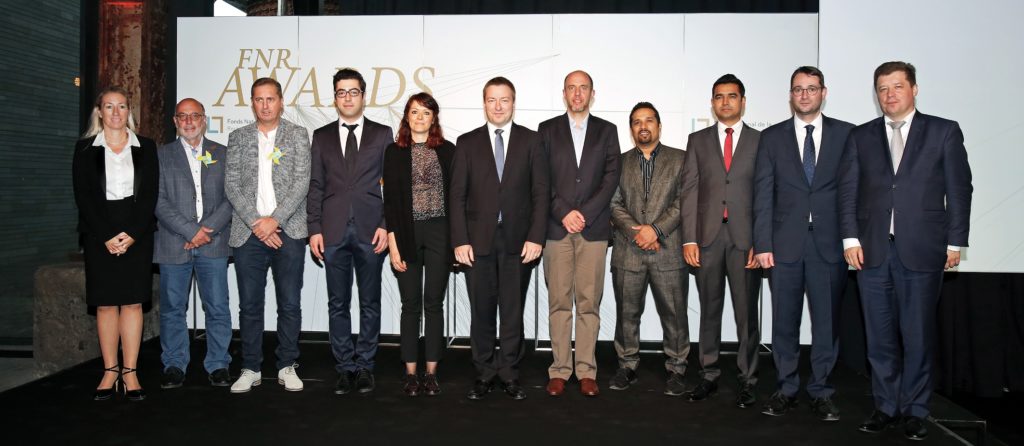
Winner Outstanding PhD Thesis
Esther Breithoff (University of Bristol) for her PhD thesis „Conflict Landscapes of the Chaco War“
Esther’s thesis was described by evaluators as “uniquely innovative, poetic and provocative”. The young researcher (originally from Luxembourg) studied the Chaco War fought between Paraguay and Bolivia from 1932 to 1935 from an archaeological point of view. This is a little known conflict which took place in an inaccessible part of the world (a hot Savanna in the middle of South America) and for which limited resources are available, in different languages.
In spite of the odds, Esther Breithoff managed to produce a vivid account of this historical episode. Her focus was on the people involved in the war: soldiers, but also different social groups such as Mennonites or Indians and their relationship with the soldiers. She conducted field work in Paraguay, Bolivia and the US and used literature, material culture, landscape archaeology, historical documents and semi-structured interviews to give a voice to the indigenous and Mennonite experience of a war, which had hitherto primarily been studied from a military history perspective.
The impact of Esther’s work on Paraguayan society and her dedication to the protection of cultural and natural heritage has furthermore moved beyond words and into meaningful action after local authorities declared one of her case study sites a protected national heritage site in 2013.
Winner Outstanding Promotion of Science to the Public
The jury this year presented two awards in the category Outstanding Promotion of Science to the Public – one to high school teachers and one to a researcher.
Guy Putz & Will Reiter (Lycée technique d’Ettelbrück) for their continuous engagement in the project “Windmobile”
The two high school teachers receive the Award for their continuous commitment to leading their school project Windmobile, which provides a platform for learning and hands-on activities around renewable energy that can be gained from wind power.
In 2016, the project celebrated its 10th anniversary with a special project week. This included the construction of a functional wind turbine by students from 9e and a 2-day conference with international speakers. The conference was open to high school and university students, and one part of the conference even to the general public.
Over the years, over 3000 students and children have participated in the Windmobile workshops. The project is part of a larger concerted effort of the Lycée technique d’Ettelbrück to teach and communicate about renewable energies, and to allow students to use their theoretical knowledge to work hands-on on a real-life scientific and societal challenge.
Christian Penny (Luxembourg Institute of Science and Technology) for his continuous public engagement, but particularly for his involvement in the project “What do we bring home from school?” of award-winning Jonk Fuerscher Camilla Hurst.
Originally from Luxembourg, Christian Penny is a microbiologist and environmental scientist at the Luxembourg Institute of Science and Technology, where his research deals with water quality and safety.
During his spare time, he communicates “Microbiology for everyone” through various activities, with the aim to raise awareness for public health aspects, environmental protection and water quality – and this particularly among the young.
The jury praised his most notable contribution: the complete scientific supervision of European School student Camilla Hurst during her Concours Jonk Fuerscher projects. Together, they look at what kind of bacteria are present in a public environment such as a school, how bacteria are spread and what material surfaces are more or less resistant to bacterial contamination.
For Christian Penny, such outreach activities are also a useful tool to get some important messages across – for example that you should wash your hands regularly to avoid the transmission of diseases.
Winners Outstanding Scientific Publications
The jury this year presented two awards in the category Outstanding Scientific Publications, which go to researchers for publications that report research work they did primarily while affiliated in Luxembourg.
Mahesh Desai (Luxembourg Institute of Health) for the publication “A dietary fiber-deprived gut microbiota degrades the colonic mucus barrier and enhances pathogen susceptibility”, published in the prestigous journal “Cell”.
Not everything we eat, we can digest ourselves. But we have a community of “good” bacteria in our gut that help us to process some of the food we eat.
In his publication, Mahesh Desai shows that this community of “good” bacteria can turn “bad” when they don’t receive natural fiber, a component of lots of fruits and vegetables. As a consequence, the bacteria start eating up the mucus lining of the gut, which usually serves as the first line of defense against external aggressions and pathogens.
The mucus layer even gets “eaten up” by bacteria to the point where dangerous bacteria such as E.coli can get through and severely infect the gut wall. And this in turn may cause digestive problems or even lead to inflammatory bowel disease or colon cancer.
The publication presents the results from a collaboration between Mahesh Desai, researchers at the University of Luxembourg, LIH and at the University of Michigan in the US.
It confirms what researchers and doctors have been telling us for decades: eat a lot of fiber from various sources.
Pranjul Shah & Paul Wilmes (Luxembourg Centre for Systems Biomedicine of the University of Luxembourg) for their publication “A microfluidics-based in vitro model of the gastrointestinal human-microbe interface”
Published in the acclaimed multidisciplinary Open Access journal „Nature Communications“, Pranjul Shah, Paul Wilmes and their colleagues describe a new laboratory model called “HuMiX”. The model, which is about the size of a beer mat, is a small laboratory device consisting of several chambers. Thanks to a specially developed method, researchers are able to study human cells and bacteria that normally live in the human intestine under conditions that are representative of those in the human intestine.
The FNR Award Jury selected this publication because it describes a unique artificial model of the human intestine that is relevant to researchers and the pharmaceutical, food and nutrition industries worldwide. HuMiX “and the publication have already received a lot of attention from both communities. This increases Luxembourg’s profile as a pioneer in this field and the visibility of Luxembourg’s microbiology research.
The two researchers received the FNR Award on behalf of a large team of scientists at the University of Luxembourg, the Luxembourg Institute of Health and the University of Arizona in the USA.
Winners Outstanding Research-Driven Innovation
This year, the FNR introduces this new Award category, which rewards exceptional public research that has led to valuable innovations of a commercial or social nature. The jury decided to give two Awards:
Pranjul Shah & Paul Wilmes (University of Luxembourg) for their „HuMiX technology“, an artificial model of the human gut
The human microbiome (the community of bacteria in our gut) has become an important area of research across the globe, because changes in the microbiome have been associated with the development of diseases such as cancer, diabetes or Parkinson’s.
Many food and nutrition as well as pharma companies around the world want to manage human health and disease by targeting a person’s microbiome. But they currently lack a good representative model to screen drugs and develop products before they are tested in lengthy and expensive clinical studies with human subjects.
The laboratory model and the HuMiX process behind it, developed by the Luxembourg research team at the University of Luxembourg, could fill this gap. The two awardees and their team have pursued the goal to commercialise HuMiX alongside their outstanding research, and are in fact now close to securing investors and creating a HuMiX-based Start-Up.
Pouyan Ziafati (Interdisciplinary Centre for Security, Reliability and Trust (SnT) of the University of Luxembourg) for the socially assistive robot „QT“
As a PhD student and Research Fellow at SnT, the interdisciplinary computer science centre at the University of Luxembourg, Pouyan Ziafati programmed and developed ‚QT‘ – a socially assistive robot that can be easily used by therapists to support their work with children with special needs or health-impaired people.
For instance, using its expressive face and body movement, QT teaches children what emotions are and how to deal with them. Right now, QT is tested for therapy of children with autism in a large international research study.
But there is much more to come – and therefore Pouyan and his partner Aida have founded the Luxembourg-based Start-Up LuxAI, with the goal to make socially assistive robots economical and user-friendly.
Photos
All photos © FNR / O Minaire
